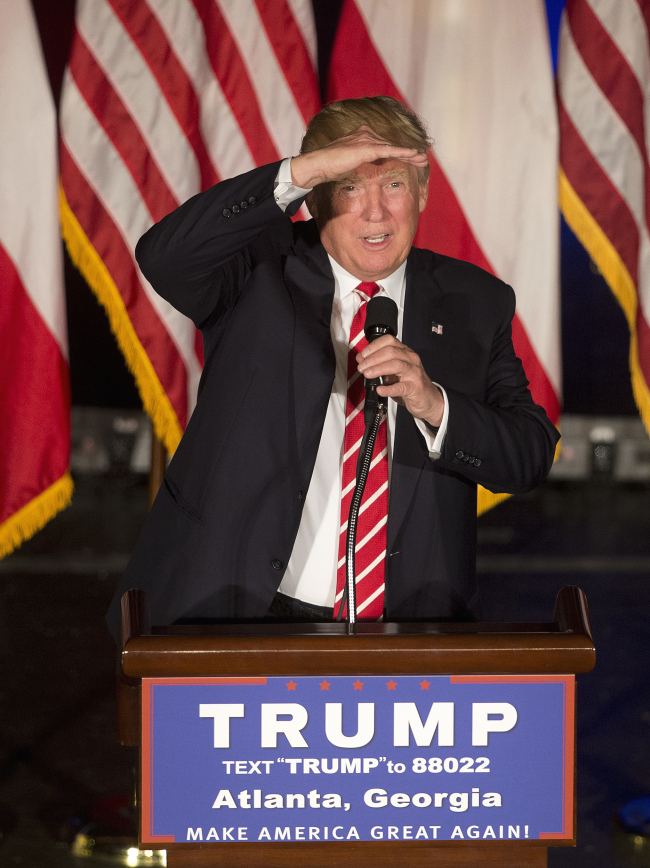Republican presidential candidate Donald Trump could bring a number of "interesting" things to the U.S. presidency, including how the real estate tycoon would deal with North Korea, an American professor said.
Bruce Cumings, a University of Chicago professor with deep expertise on Korea, made the remark in a recent article in the Bulletin of the Atomic Scientists, noting that Trump has expressed a willingness to hold direct talks with North Korean leader Kim Jong-un.
"If Hillary Clinton becomes president, she will undoubtedly continue the policy of isolation and denuclearization of North Korea. Any number of things would make a Trump presidency interesting, to say the least, but one of them is to see what he would really do in regard to Korea policy," Cumings said.
Trump first expressed his willingness to hold direct talks with the North's Kim in a media interview last month, drawing criticism not only from critics but also from his own party that such a meeting would end up bolstering the dictator.
 |
Republican presidential nominee Donald Trump says he would meet the North Korean leader and that “We should be eating a hamburger on a conference table and making better deals.” (Yonhap) |
But while Trump has insisted on his willingness to speak to Kim, he has also said he won't go to the North. Earlier this week, Trump said he would "accept" a visit to the U.S. by North Korean leader Kim Jong-un and hold nuclear negotiations with him while eating hamburgers, instead of a state dinner.
During a campaign rally in Atlanta, Trump also said he will only "make a good deal" if he were to hold talks with the North's leader. He also said that there's a "10 percent or 20 percent chance" he could talk Kim out of developing nuclear weapons.
Cumings likened Trump to a "loose cannon" and an "unguided missile," saying it is inherently difficult to explain what Trump's foreign policy platform would look like and what he would do with regard to Korea. Still, however, the professor appeared to give points to his willingness to talk.
"American leaders seem to think that it's a big gift if they deign to talk to enemy heads of state. But diplomacy emerged in history as a way of getting enemies to talk to, rather than fight with, each other," Cumings said.
"What exactly has Washington gotten from its policy of isolating North Korea for 70 years and pretending that it doesn't exist? Nothing but conflict, pain and suffering. Give North Korea a couple more years, and it will have been around longer than the entire Soviet Union," he said.
The six-party talks aimed at resolving the North Korean standoff have been stalled since late 2008. The U.S. has insisted that the North must take concrete steps demonstrating its commitment to rolling back the nuclear program before the negotiations reopen.
While the talks idled, the North, which conducted its first nuclear test in 2006, conducted three more nuclear tests: one in 2009, another in 2013 and the latest in January this year. Analysts have warned that it is only a matter of time before the North develops nuclear-tipped missiles capable of striking the U.S. (Yonhap)








